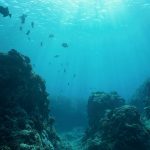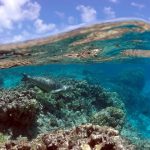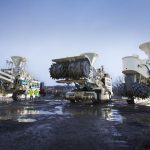PRESS RELEASE
FOR IMMEDIATE RELEASE
27th JULY, 2019
Kingston, Jamaica – 27th July 2019 – The International Seabed Authority (ISA) concluded its two week annual meeting yesterday following a round of speeches to mark the 25th Anniversary of the organization. The Deep Sea Conservation Coalition (DSCC) called on the member countries of the ISA to shift priorities to properly protect the deep ocean, which makes up 90% of the marine environment.
The ISA has served a critical role since its inception, under the 1982 United Nations Convention on the Law of the Sea, to ensure that unregulated mining in the international areas of world’s ocean does not occur. Currently only regulations that allow for exploration for minerals are in force.
During discussions over the past two weeks, ISA members continued debating draft mining regulations to enable commercial seabed mining to take place. Countries had previously set 2020 as the target for adopting the commercial regulations. However, many countries this week voiced concern over rushing the negotiations to meet that deadline. While the regulations may not be adopted next year, many countries expressed support for making the transition from ‘exploration’ to ‘exploitation’ of the deep sea within the next few years.
“We’re calling on States to reconsider whether they should permit deep seabed mining in the first place, given how little we know about deep-sea ecosystems, and whether it is even possible to mine the deep ocean and prevent the loss of species and biodiversity” said Matthew Gianni, co-founder of the DSCC.
States agreed to amend provisions to a key operational document adopted by the ISA this week. This could allow for the public release of contracts and the annual reports, which are currently kept confidential, on activities undertaken in the deep sea by the companies and countries that have exploration licenses with the ISA.
A proposal for highly restrictive guidelines for NGO attendance at meetings of the ISA was soundly rejected by member States, with many countries expressing concerns that reducing observer participation would discourage transparency and accountable decision-making. Nonetheless, the key advisory body of the ISA, the Legal and Technical Commission, continues
to meet behind closed doors in spite of a decision by member countries of the ISA two years ago that it should hold open meetings.
“This underlines the very difficult job of negotiating robust, transparent and effective regulations for the deep sea,” said Duncan Currie, an international lawyer who attended the annual meeting for the DSCC. “Many States appreciate the need for inclusive, transparent regulations that will ensure the effective protection of the marine environment.”
Calls for a moratorium on deep-seabed mining are gaining support. In May of this year, the Long Distance Advisory Council of the European Union, whose members include representatives of the EU’s high seas and distant water fishing fleets, trade unions and NGOs, called for a moratorium on ISA sponsored deep-seabed mining. This follows similar calls made by the European Parliament in 2018, the UN’s Special Envoy for the Oceans, Greenpeace, the Deep Sea Mining Campaign and others. The UK Parliament’s Environmental Audit Committee released a report in January of this year, concluding that “deep-sea mining would have catastrophic impacts on the seafloor site and its inhabitants,” and that “the case for deep-sea mining has not yet been made”.
Scientists continue to raise serious concerns over the potential impact of seabed mining on deep-sea species and ecosystems. In a letter this week to the ISA, scientists warned that deep seabed mining could cause irreversible and inevitable harm to marine life, including extinctions of species, and drive the climate crisis by disrupting ‘blue carbon’ stored in the seabed. The ISA now has an unprecedented opportunity to shift its current pro-mining agenda to become a champion for the research, understanding and protection of the deep-sea environment for the benefit of humankind.
— END —
Contacts: Matthew Gianni matthewgianni@gmail.com +31-646 168 899
Duncan Currie duncanc@globelaw.com
Website: www.savethehighseas.org Twitter: @DeepSeaConserve









